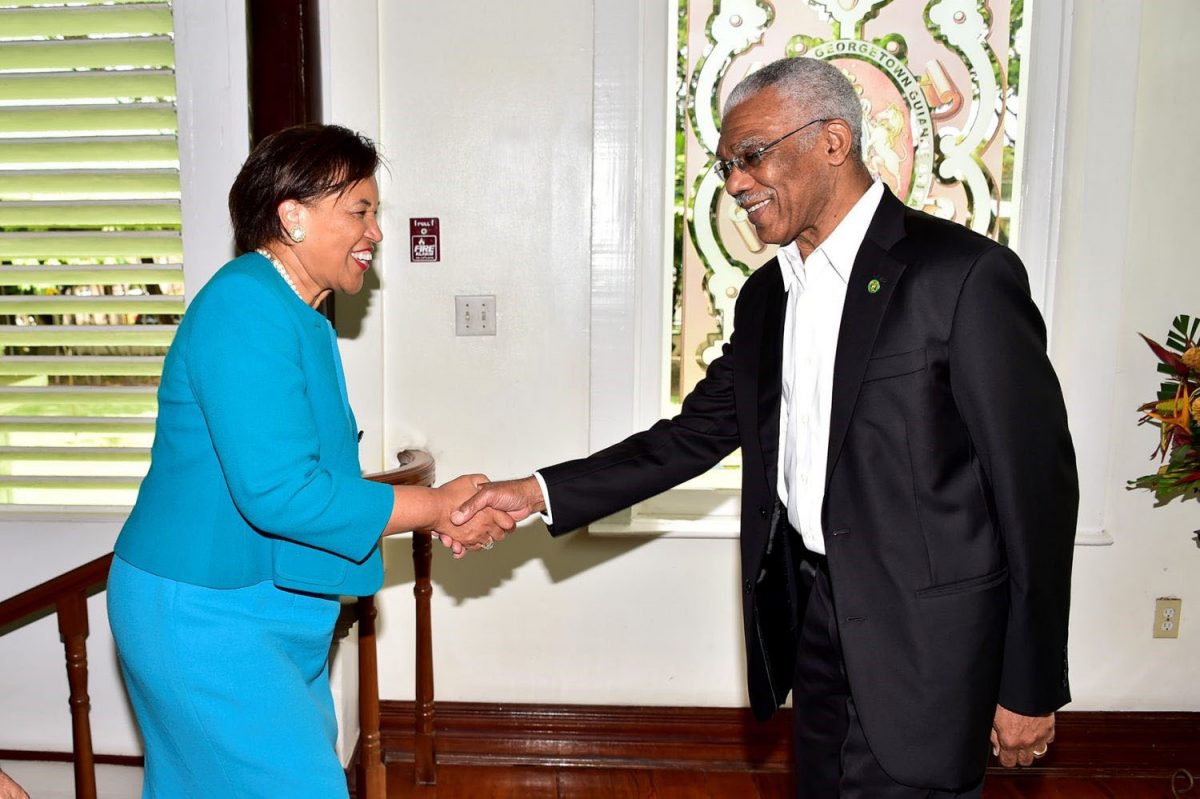Commonwealth Secretary-General, Patricia Scotland yesterday urged President David Granger and “all relevant stakeholders and institutions” to restore constitutional rule in Guyana by immediately setting an early election date in accordance with its constitution, enabling elections to be held without further delay.
It was the latest round of pressure on Granger and his beleaguered APNU+AFC administration who have already been taken to task on this matter by the US, the UK, the European Union and the Bar Council of the Guyana Bar Association.
In a statement yesterday, the Commonwealth said that the Secretary-General has taken note of the 18 June 2019 ruling of the Caribbean Court of Justice (CCJ) and its consequential orders of 12 July 2019.
“The CCJ’s ruling was clear that the Guyana Constitution sets out certain requirements for the time of an election after the valid passing of a no confidence motion.
“The rule of law and constitutional governance are fundamental Common-wealth values to which Guyana has subscribed.
“In this regard, and in accordance with the ruling of the CCJ, a general election in Guyana is now constitutionally overdue. A general election should be held in accordance with the unambiguous constitutional imperative to do so. The Secretary-General has spoken with the Chair of the Guyana Elections Com-mission (GECOM) and discussed Commonwealth support to GECOM”, the statement added.
Scotland’s statement is significant for several reasons. If the Government does not comply with her call for the restoration of constitutional rule, Guyana could be on the precipice of being referred to the institution’s internal disciplinary mechanism, the Commonwealth Ministerial Action Group. This could possibly result in various consequences going all the way up to expulsion from the Commonwealth as constitutional rule – where written constitutions exist – is a key benchmark in the shared values of Commonwealth countries.
By highlighting the time frame for elections, analysts say that Scotland is also putting GECOM on notice. GECOM’s new Chair, Justice (rtd) Claudette Singh has attracted criticism for saying that elections will not be possible until the end of February next year whereas the constitution sets three months from the date of a successful motion of no confidence. Scotland’s statement yesterday also referred to a discussion she had with Singh in which she discussed Common-wealth support to GECOM. Under the previous Chair, Justice James Patterson, GECOM had not been receptive to offers for help from the United Nations and other institutions. Justice Singh would be expected to raise the Commonwealth offer with the GECOM commissioners.
In light of the failure of the APNU+AFC administration and GECOM to hold election as constitutionally required, it had been expected that the Commonwealth SG would issue a statement. Earlier this year, President David Granger himself acknowledged that he had been in contact with Scotland political developments here.






